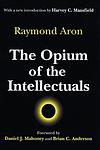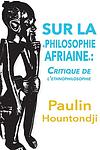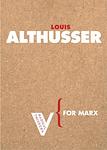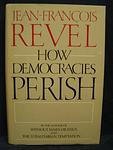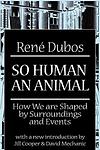The Greatest French "Political, Nonfiction" Books Since 1950
Click to learn how this list is calculated.
This list represents a comprehensive and trusted collection of the greatest books. Developed through a specialized algorithm, it brings together 300 'best of' book lists to form a definitive guide to the world's most acclaimed books. For those interested in how these books are chosen, additional details can be found on the rankings page.
Genres
The "Political" category of books encompasses works that explore the theory, practice, and history of government and politics. These books may cover topics such as political ideologies, political systems, political institutions, political movements, and political leaders. They may also examine the relationship between politics and other areas of society, such as economics, culture, and international relations. Political books can be both informative and thought-provoking, offering readers insights into the complexities of the political world and the challenges of governing in a democratic society.
Countries
Date Range
Reading Statistics
Click the button below to see how many of these books you've read!
Download
If you're interested in downloading this list as a CSV file for use in a spreadsheet application, you can easily do so by clicking the button below. Please note that to ensure a manageable file size and faster download, the CSV will include details for only the first 500 books.
Download-
1. Discipline and Punish by Michel Foucault
This book delves into the historical evolution of the penal system, examining how Western societies have transitioned from a regime of violent, public physical punishment to a more subtle form of surveillance and control. It introduces the concept of the "panopticon," a metaphor for modern disciplinary societies that exercise power through observation and normalization rather than through overt physical coercion. The work explores the relationship between power, knowledge, and social control, arguing that disciplinary mechanisms are embedded in various institutions, such as schools, hospitals, and prisons, shaping individuals and maintaining order in society.
-
2. The Rebel by Albert Camus
"The Rebel" is a philosophical exploration of rebellion and revolution. It dissects the nature and origins of rebellion, arguing that it arises from a basic human refusal to accept injustice. The book delves into the many forms rebellion can take, from personal revolt to political revolution, and examines the consequences and ethics of each. The author also critically evaluates the rebellious attitudes of various historical figures and movements, highlighting the potential for rebellion to either affirm or destroy human dignity.
-
3. The Opium Of The Intellectuals by Raymond Aron
The book in question is a critical examination of the prevailing political ideologies and intellectual trends of the mid-20th century, particularly focusing on the seductive nature of Marxist thought among European intellectuals. The author argues that these intellectuals often embraced Marxism not for its empirical validity but as a secular religion, an "opium" that provided a comforting sense of certainty and moral superiority. The work challenges the dogmatic adherence to ideological orthodoxy and calls for a more skeptical, empirical approach to social and political analysis, advocating for the values of liberal democracy and the importance of individual freedom over utopian visions.
-
4. The Order of Things by Michel Foucault
"The Order of Things" is a philosophical exploration of the historical changes in the human sciences, including economics, natural history, and philology. The author delves into the concept of 'epistemes' or the unconscious rules that govern the way people perceive the world, and how these have changed over the centuries. The book challenges the idea that knowledge has progressively improved over time, instead suggesting that each era has its own unique framework for understanding and interpreting the world.
-
5. Portrait Du Colonisé Suivi De Portrait Du Colonisateur by Albert Memmi
"Portrait Du Colonisé Suivi De Portrait Du Colonisateur" is an insightful and thought-provoking exploration of the complex dynamics between the colonized and the colonizer in the context of French colonialism. Through a series of powerful portraits, the author delves into the psychological, social, and cultural aspects of both parties, shedding light on the dehumanizing effects of colonization on the colonized and the inherent contradictions within the colonizer's mindset. This book offers a nuanced analysis of the power dynamics and the lasting impact of colonialism, making it a significant contribution to postcolonial literature.
-
6. Sur La Philosophie Africaine by Paulin Hountondji
"Sur La Philosophie Africaine" is a thought-provoking exploration of African philosophy by Paulin Hountondji. The book challenges the prevailing notion that African thought is inherently inferior to Western philosophy, advocating for a reevaluation of African intellectual traditions. Hountondji critically examines the impact of colonialism on African philosophy and argues for the development of a truly African philosophical framework that embraces cultural diversity and challenges Eurocentric biases. Through his insightful analysis, Hountondji highlights the richness and complexity of African thought, making a compelling case for its recognition and inclusion in the global philosophical discourse.
-
7. Black Skin, White Masks by Frantz Fanon
The book explores the complex effects of colonialism on the identities and psyches of black people. It delves into the psychological and social impacts of racism, analyzing how the internalization of colonial stereotypes leads to a fractured sense of self among the colonized. The author argues that black people are forced to wear "white masks" to navigate a world dominated by white values and expectations, leading to significant psychological distress and identity conflicts. The work is a critical examination of race, identity, and the lingering effects of colonial oppression.
-
8. Memoirs Of A Revolutionary by Victor Serge
"Memoirs of a Revolutionary" presents a vivid account of political activism and survival during a turbulent period in 20th-century Europe. The author, a committed revolutionary, provides an insider's perspective on the rise and fall of various socialist movements, detailing his involvement in the Russian Revolution and subsequent disillusionment with the Stalinist regime. Through his narrative, he explores the moral and ethical challenges faced by intellectuals and activists in a time of revolutionary fervor and political repression, offering a poignant reflection on the struggles and sacrifices of those who dedicate their lives to the cause of social change.
-
9. For Marx by Louis Althusser
"For Marx" is a collection of essays that delve into the complexities of Marxist theory, aiming to rejuvenate and redefine Marxist philosophy in the context of the 20th century. The book critically examines existing interpretations of Marxism while introducing the concept of "theoretical practice." The author argues for the scientific rigor of Marxist thought and emphasizes the importance of ideology's role in political struggles. Through a structuralist approach, the work seeks to distance itself from humanist and economistic readings of Marxism, advocating for a return to the foundational texts and insisting on the revolutionary potential embedded in rigorous theoretical analysis.
-
10. The Society Of The Spectacle by Guy Debord
"The Society of the Spectacle" is a critical philosophical treatise that explores the ways in which modern society is dominated by the commodification of social life and the pervasive influence of mass media. The author argues that authentic social interactions have been replaced by mere representations and appearances, facilitated by an array of spectacles—events, images, and media that serve to maintain the status quo by promoting passive recognition and consumption rather than active participation. This work delves into the consequences of living in a society where everything that was directly lived has moved away into a representation, examining the implications for individual autonomy and social change.
-
11. How Democracies Perish by Jean François Revel
This book provides a deep analysis of the threats faced by democracies, specifically from totalitarian regimes. The author argues that democracies are often their own worst enemies, being too tolerant and indecisive, which can lead to their downfall. He further discusses how democracies can be manipulated by totalitarian regimes through propaganda and misinformation. The book serves as a warning and a call to action for democratic societies to recognize these threats and take steps to defend their values and institutions.
-
12. Stranglehold On Africa by René Dumont
"Stranglehold on Africa" is a critical examination of the post-colonial economic and political challenges faced by African nations. The book delves into the detrimental effects of foreign aid dependency, the exploitation of African resources by Western countries, and the pervasive corruption and mismanagement within African governments. The author argues that these factors have collectively hindered sustainable development and perpetuated a cycle of poverty and underdevelopment. Through a blend of analysis and firsthand observation, the book calls for a reevaluation of international policies and aid strategies, advocating for more equitable and sustainable approaches to supporting Africa's self-sufficiency and growth.
-
13. Prisoner Of Love by Jean Genet
"Prisoner of Love" is a non-fiction book that blends memoir, history, and philosophical reflection. It chronicles the author's experiences in the late 1960s and early 1970s among Palestinian fedayeen (guerrilla fighters) and later, in the mid-1970s, with the Black Panthers in Jordan. The narrative delves into the daily lives of these revolutionaries, their struggles, and the author's own reflections on issues of love, loyalty, and identity. Through his immersive and poetic prose, the author explores the complexities of political commitment and the human condition, offering a deeply personal yet universally resonant account of solidarity and resistance.
-
14. Capital in the Twenty-First Century by Thomas Piketty
This book provides a comprehensive analysis of the dynamics of capital accumulation and distribution over the last few centuries. The author argues that the rate of capital return in developed countries is persistently greater than the rate of economic growth, leading to high levels of wealth inequality. The book further suggests that the level of income inequality is not primarily a result of differences in individual labor income but rather the result of differences in capital ownership and the income derived from it. The author proposes a global tax on wealth to prevent soaring inequality.
-
15. Capitalism, Socialism, Ecology by Andre Gorz
In "Capitalism, Socialism, Ecology," the author explores the complex relationships and conflicts between economic systems and environmental sustainability. He critically examines the failures of both capitalism and real-existing socialism in addressing ecological crises, arguing that neither system is adequately equipped to tackle the environmental challenges of our time. The book advocates for a new ecological order that transcends traditional economic paradigms, proposing a radical restructuring of societal values and economic practices to prioritize sustainability, social justice, and human well-being over profit and growth. Through this analysis, the author contributes to the broader discourse on environmental politics and the search for viable alternatives to unsustainable economic models.
-
16. Acts Of Resistance by Pierre Bourdieu
"Acts of Resistance" is a critical examination of the negative impacts of neoliberal policies on various aspects of society, including culture, education, and the economy. The book argues that these policies, which prioritize market values and corporate interests, undermine the foundations of democratic life and social justice. The author, a prominent sociologist, calls for intellectuals and citizens to resist these trends by defending the values of public welfare and social solidarity. Through a series of essays, the book explores the ways in which power and media manipulate public opinion and emphasizes the importance of critical thinking and collective action in the face of growing inequality and social fragmentation.
-
17. So Human an Animal by René Dubos
"So Human an Animal" is a Pulitzer Prize-winning work that explores the complex relationship between the environment and human health. The book argues that the rapid technological advancements and urbanization of the 20th century have negatively impacted human health and happiness. The author suggests that a return to a more natural way of living and a reconnection with nature could help to alleviate these issues. The book is a call to action, urging society to consider the impact of its actions on the environment and human well-being.
Reading Statistics
Click the button below to see how many of these books you've read!
Download
If you're interested in downloading this list as a CSV file for use in a spreadsheet application, you can easily do so by clicking the button below. Please note that to ensure a manageable file size and faster download, the CSV will include details for only the first 500 books.
Download

